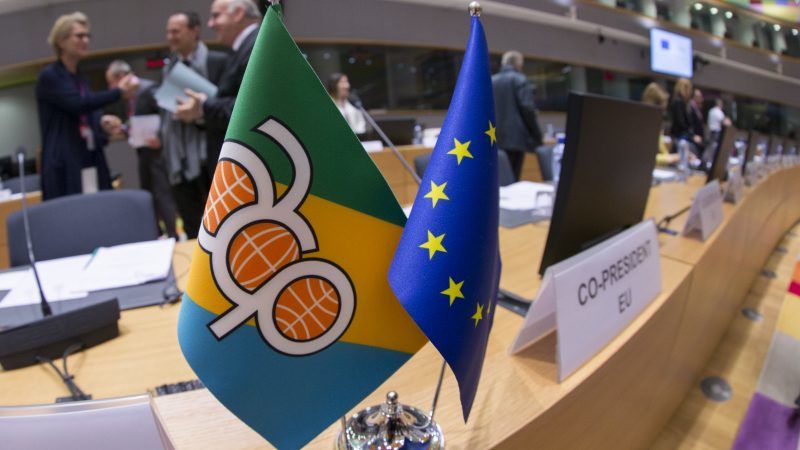
More than two years of delay in ratifying the new EU treaty with African, Caribbean and Pacific countries ended on Thursday (20 July) after Poland confirmed its approval of the agreement.
The treaty is set to be formally signed by leaders at a summit in Samoa in the coming weeks.
After Hungary abandoned its opposition to the treaty over its provisions on migration and gender rights in April, Warsaw withheld its signature in protest at the treaty’s language promoting non-discrimination, LGBT rights and gender equality. However, diplomats conceded that Poland’s real motive was to protest the European Commission’s decision to lift an embargo on grain from Ukraine,
The Cotonou Partnership Agreement between the EU and 78 African, Caribbean and Pacific (ACP) countries should have expired in February 2020 but was extended until December 2021 after negotiations on a successor deal took longer than planned. Following the delays in ratification in Europe, Cotonou was rolled over until September 2023.
Jutta Urpilainen, the EU’s international partnerships commissioner, described the ratification as “historic” in a statement.
The agreement “sets the scene for alliance-building and more coordinated actions on the international stage,” added Carlos Zorrinho MEP and Mozambican lawmaker Ana Rita Sithole, the co-presidents of the ACP-EU Joint Parliamentary Assembly.
However, political opinion is divided on the value of the EU’s relations with the ACP.
The new treaty covers political and economic relations with the 79-member ACP but, unlike its predecessor, does not have an aid component or change EU-African trade relations.
The EU has struggled to finalise Economic Partnership Agreements with various states across the ACP, primarily over fears that they would force developing countries to open their markets to EU firms.
Meanwhile, the secretariat of the Organisation of African, Caribbean and Pacific States (OACP) is financed by the EU budget and is regarded as a far weaker organisation than the African Union.
OACP internal documents published recently indicated that only €1.19 million had been paid out of the €5.46 million from ACP member states to finance its 2023 budget, while ten countries are still yet to pay their 2022 budget contributions.
The ACP does not include North African states, which South Africa, arguably the most influential African state, decided to leave the ACP late last year, pointing to its lack of influence.
___
Source here
